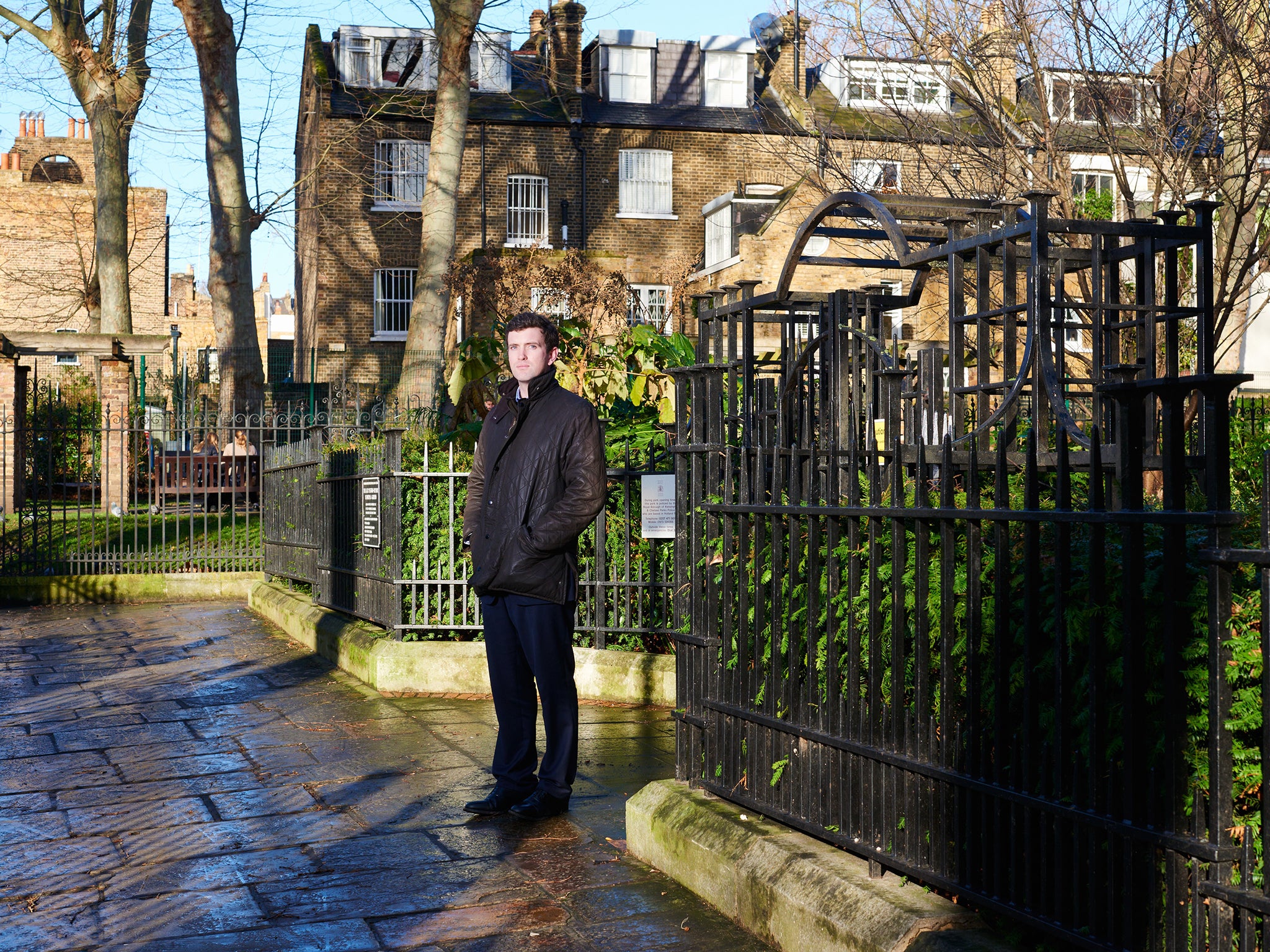If you see someone homeless on the streets, don't just walk on - do something
Outreach workers have no hope of even attempting to help if they don’t know where people are

It’s great that our story today about a homeless man who died, impaled on a fence in one of the richest corners of London, is being widely read today. Not only because it gives a name to someone who passed through a troubled life mostly unnoticed, but also because there is a lot you can do.
Petra Salva is director of outreach services at St Mungo’s Broadway, a charity doing vital work mainly in London and the South. When we spoke before Christmas, she told me that when she speaks to large groups of people, she always asks them whether they tend to walk on by and do nothing when they see someone living on the street.
“Usually 80 per cent put their hand up,” she said. “Either it’s because they don’t know what to do, they don’t know what to do, or they think it’s not their problem… there is a perception that it’s the individual’s fault, or a lifestyle choice, but that are very, very few cases where that is true.”
I, too, fell firmly into the walk-on-by category. So did Ed Boord, the unfortunate guy who found Pawel Koseda’s body. Boord said he had for weeks given money or cigarettes to a rough sleeper near his home, but he had never stopped to talk or learn his name.
“We get so ingrained in our London lifestyle,” he told me. “We’re so bloody selfish.”
Not everyone wants to engage, and you can be a good person and still feel that way. But what I have learned in the past few weeks is that if you do one thing when you see someone on a pavement, begging or sheltering under a blanket, it is this: alert the people who are trained to help.
Salva, whose own father, a Czech national, was briefly homeless when he arrived in Britain in 1969, is the founder and director of StreetLink, a vital national service that connects rough sleepers to local support.
StreetLink is brilliant, and I used it myself when, while talking to “Rowe”, a long-term rough sleeper who spends his days sitting on Kensington High Street, I noticed a woman had bedded down on the pavement behind him. She had been there since before Christmas and had mental health problems, Rowe said.
Online, or by calling 0300 500 0914, anyone can fill in a short form with the location and description of a rough sleeper. I got a call back about an hour later, and asked to provide a bit more detail. Later that night, an outreach worker would have visited the woman. A few days later, she had gone.
Responding in this way is simple but, Salva says, also more effective than what we tend to do, if we do anything at all. “There is a culture here of giving money to beggars, which can keep people on the street,” she explains. “People who come off the street often say to me that they would have sought help sooner without the money.”
I saw the other end of the StreetLink operation earlier this month, when I joined Darek Karwacki, one of the charity’s outreach workers, for a nighttime tour of Southwark, a borough I thought I knew. He had a spreadsheet of locations, many of them reported via StreetLink.
Some nights Karwacki, who is Polish, will meet dozens of people, sometimes just a couple. In all cases, he hears their story, initiates an assessment, and comes up with a solution to help people get work, shelter, rehab, or reconnection to their home country.
It often takes weeks or even months for to gain the trust of rough sleepers, so that they can be helped. But outreach workers have no hope of even attempting to help if they don’t know where people are.
Karwacki told me about a Polish former drug addict man whom he spent weeks working with, eventually arranging his reconnection to Warsaw, where he is now in rehab and works at Marks & Spencer. Sometimes the solution can be much simpler. “With one guy I asked him, ‘do you want to call your Mum?’” Karwacki sas. “He said yes, and the guy’s family paid for his ticket and he was on his way home the next day.”
To alert outreach teams to a rough sleeper, go to www.streetlink.org.uk, or to support St Mungo’s Broadway, visit mungosbroadway.org.uk

Join our commenting forum
Join thought-provoking conversations, follow other Independent readers and see their replies